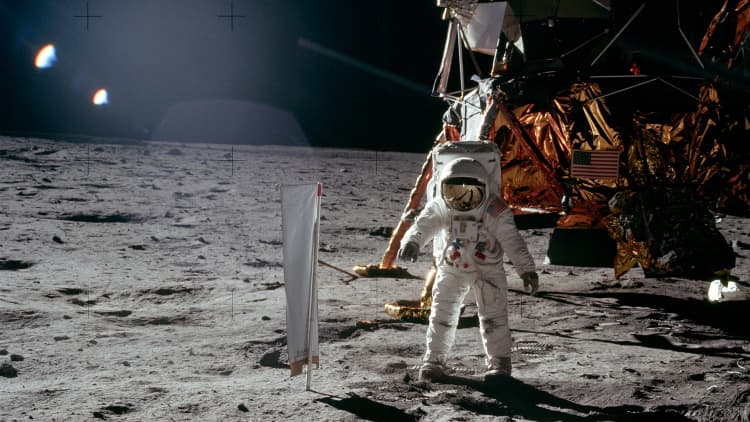
Intuitive Machines’ Nova-C lander “Odysseus” deploys from the upper stage of SpaceX’s Falcon 9 rocket to begin the IM-1 mission.
NASA TV
Shares of Intuitive Machines jumped for a second consecutive day after the company issued an update that said its moon lander mission “is in excellent health.”
The Texas-based lunar company launched its inaugural cargo mission, known as IM-1, on a SpaceX rocket early Thursday morning. In an update Thursday evening, Intuitive wrote that the lander was turned on and its batteries had been “fully charged.” The company disclosed a minor issue with the spacecraft’s navigation system but said the problem was resolved with a software update.
Intuitive Machines’ stock jumped as much as 30% in early trading Friday before paring gains to trade up about 16% from its previous close of $6.70 a share.
The stock surged 35% on Thursday after the IM-1 mission launched successfully. Since IM-1 launched, Intuitive Machines’ stock is up 75% as of Friday’s trading high.
The company’s shares still trade below its post-SPAC merger debut pricing a year ago, however.
Sign up here to receive weekly editions of CNBC’s Investing in Space newsletter.
Andrew Chanin, CEO of ProcureAM, which runs the “UFO” space-focused ETF, emphasized to CNBC that he is “never shocked to see volatility related to a space company, especially a pure-play space company” and noted that the yet-unprofitable Intuitive Machines is a relatively small company by market size.
“We’re rooting for them. To the extent that they can show success here … hopefully that will bring more belief that this is something that’s doable,” Chanin said.
The IM-1 lander, carrying both government and commercial research payloads, is expected to spend about eight days traveling to the moon before making a landing attempt on Feb. 22.
“There’s a tremendous amount of focus on the moon right now. Most investors don’t have much, if any, space exposure currently and to the extent that the U.S. commercial businesses, [NASA], or foreign governments see success on the moon, it appears that it’s only going to encourage other entities to also ramp up their focus and spending on the moon,” Chanin said.

Don’t miss these stories from CNBC PRO:





